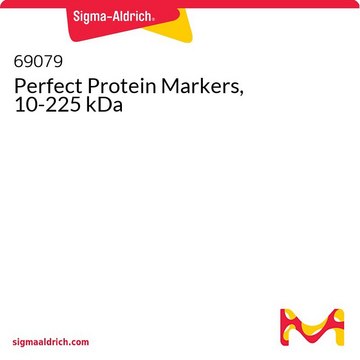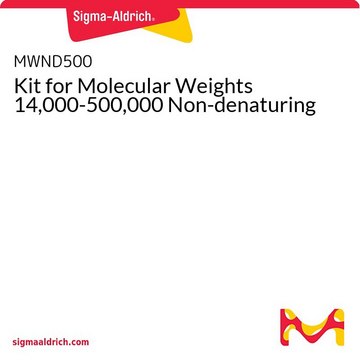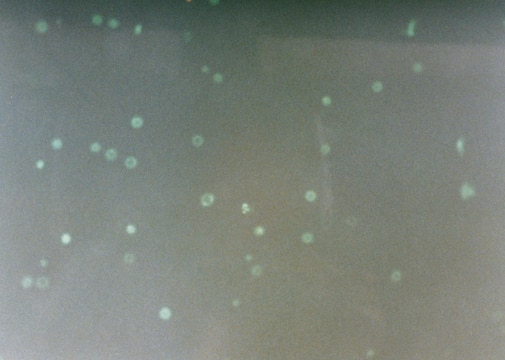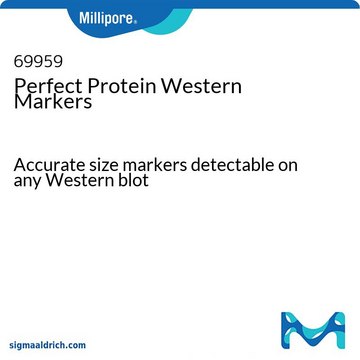S8445
SigmaMarker™
wide range, mol wt 6,500-200,000 Da
Sinónimos:
protein markers, protein standards
About This Item
Productos recomendados
Quality Level
form
lyophilized powder
usage
sufficient for 10-20 large gels (16 × 18 cm)
sufficient for 20-30 mini-gels (10 × 10 cm)
1 vial sufficient for 50-100 PhastGels
mol wt
6,500-200,000 Da
storage temp.
2-8°C
¿Está buscando productos similares? Visita Guía de comparación de productos
Application
Other Notes
Aprotinin, bovine lung (6,500)
α-Lactalbumin, bovine milk (14,200)
Trypsin inhibitor, soybean (20,000)
Trypsinogen, bovine pancreas (24,000)
Carbonic anhydrase, bovine erythrocytes (29,000)
Glyceraldehyde-3-phosphate dehydrogenase, rabbit muscle (36,000)
Ovalbumin, chicken egg (45,000)
Glutamic dehydrogenase, bovine liver (55,000)
Albumin, bovine serum (66,000)
Phosphorylase B, rabbit muscle (97,000)
β-Galactosidase, E. coli (116,000)
Myosin, porcine heart (200,000)
Reconstitution
Legal Information
Related product
signalword
Danger
hcodes
Hazard Classifications
Eye Irrit. 2 - Resp. Sens. 1 - Skin Irrit. 2 - Skin Sens. 1
Storage Class
11 - Combustible Solids
wgk_germany
WGK 3
flash_point_f
Not applicable
flash_point_c
Not applicable
ppe
dust mask type N95 (US), Eyeshields, Faceshields, Gloves
Certificados de análisis (COA)
Busque Certificados de análisis (COA) introduciendo el número de lote del producto. Los números de lote se encuentran en la etiqueta del producto después de las palabras «Lot» o «Batch»
¿Ya tiene este producto?
Encuentre la documentación para los productos que ha comprado recientemente en la Biblioteca de documentos.
Nuestro equipo de científicos tiene experiencia en todas las áreas de investigación: Ciencias de la vida, Ciencia de los materiales, Síntesis química, Cromatografía, Analítica y muchas otras.
Póngase en contacto con el Servicio técnico









